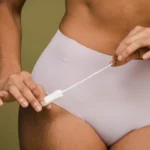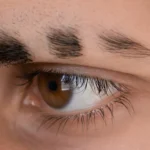Waxing is a popular hair elimination technique. But can it lessen the hair boom? Let’s discover the truth.
Waxing may not directly reduce hair growth; however, it does affect the look and experience of regrowth. Hair eliminated with waxing has a tapered end, making it look exceptional and tender.
Over time, standard waxing can weaken the follicles. This trauma can damage them, making it less possible for brand-spanking new hair to develop and return. However, this impact varies from man or woman to character.
Contents
Understanding Waxing
Waxing is a hair-elimination approach that entails applying hot or cold wax to the skin. The wax is then pulled out speedily against the path of the hair boom, uprooting the hair follicles and leaving clean skin.
It offers longer-lasting results compared to other methods, such as shaving or depilatory lotions. Also, regular waxing can cause finer and sparser hair regrowth over the years.
The process of waxing dates back hundreds of years. Ancient civilizations used beeswax, sugar-based total pastes, or seashells to remove body hair, which shaped the current strategies.
Waxing is a remarkable desire for those looking for semi-everlasting hair elimination solutions. It results in less renovation and decreased hair growth over the years. If you need an extended-lasting solution, you should remember to wax!
How Does Waxing Work?
Waxing is a famous hair removal method, so how does it work? Let’s discover!
- Wax – sticky stuff – is implemented at the place with hair increase.
- Quickly unfold with a timber spatula or strip.
- Next, stick a material strip of paper onto the wax – adhering to the hair and strip.
- Cool and harden, then yank off in the opposite direction of the hair boom.
- Removes undesirable hair and exfoliates useless skin cells at the same time.
- Clean up any residue with oil or toddler wipes.
Also, ordinary waxing can help reduce hair growth over time because the treatments weaken the follicles, leading to finer and sparser regrowth.
Is It True That Waxing Can Reduce Hair Growth?
Waxing is stated to forestall hair growth, but it permits observation of the fact. It doesn’t really change the velocity of hair regrowth. Waxing just pulls hair out of the foundation, so it takes longer to return than with different treatments.
Still, there may be a reason why waxing seems to halt the hair boom. Regular waxing can weaken hair follicles over the years, leading to finer, sparser regrowth. This isn’t permanent and differs between humans. Exfoliating can stop ingrown hairs and create the impression of less hair growth.
To revel in smoother pores and skin for longer, here are a few hints:
- Stick to a waxing routine: This will reduce the rubble of the regrowth sample and stop you from plucking or shaving.
- Exfoliate before each waxing consultation: This removes dead pores and skin cells and makes hair elimination less difficult.
Also, moisturizing the skin will make the wax stick higher and reduce pain. Lastly, getting professional waxing offerings instead of DIY kits increases accuracy and results.
Tips For Waxing To Reduce Hair Growth Potentially
Waxing is a famous way to get smooth, hair-unfastened pores and skin. Can it also lessen hair regrowth? Here are a few recommendations that might assist!

✅ Hot Wax: Temperature topics! Hot wax opens up the follicles to eliminate hair from the root.
✅ Be regular: Consistent waxing weakens the follicles, leading to slower and finer regrowth.
✅ Exfoliate: Before and after waxing, exfoliate to eliminate lifeless pores and skin cells and save you from ingrown hairs.
To maximize outcomes, don’t shave between waxes. Also, moisturize your skin and use sun protection.
Other Hair Removal Methods And Their Effects On Hair Growth
Numerous techniques could have specific outcomes for hair regrowth when seeking hair removal. To help individuals determine which approach is pleasant for them, let’s examine several approaches and the manner in which they affect hair growth.
Shaving: It cuts the hair off the pores and skin’s surface. Yet, it doesn’t affect destiny hair regrowth. However, stubble may also appear more obvious as the hair grows back.
Depilatory creams dissolve the hair shaft’s protein structure, leading to smoother pores and skin. However, this is the most effective temporary solution and won’t affect the cost or quality of Destiny Hair Boom.
Laser hair removal: This objective damages follicles to lessen and likely block future hair increase. Usually, several classes are wished for pleasant outcomes.
Electrolysis: A needle is inserted into a man or woman’s follicles, after which an electric-powered current is used to smash them. This method offers everlasting effects by stopping follicles from creating new hair.
Sugaring: A sticky paste crafted from sugar, lemon juice, and water is applied to the skin and then removed in conjunction with the hair. It properly gets rid of unwanted hair but does not affect regrowth.
It’s worth noting that everyone’s experience with these strategies can vary due to factors such as genetics, hormonal fluctuations, and a person’s response to remedies.
Last Words
In conclusion, even as waxing does not immediately reduce hair growth, it does have a considerable effect on the advent and texture of regrown hair. The waxing technique removes hair from the basis, leading to a smoother experience and look. Over time, ordinary waxing can weaken hair follicles, probably resulting in finer and sparser hair regrowth. However, this effect varies among people and is sometimes only permanent.
Waxing is a famous and robust method for those searching for longer-lasting hair removal compared to different techniques like shaving or depilatory creams. For top-of-the-line effects, adhering to a constant habit of waxing, exfoliating, and moisturizing the pores and skin is essential. While different hair removal strategies, including laser treatment and electrolysis, may offer more everlasting answers, waxing is a desire for many due to its effectiveness and convenience.
Frequently Asked Questions (FAQs)
1. Does Waxing Eventually Stop Hair Growth?
Waxing does not permanently stop hair growth. However, regular waxing can weaken hair follicles over time, potentially leading to finer and sparser hair regrowth. This effect varies from person to person and is not guaranteed permanent.
2. How Often Do I Wax Before The Hair Stops Growing?
The number of waxing sessions needed to reduce hair growth varies for each individual. Generally, it takes several consistent waxing sessions over months or even years to notice a significant reduction in hair density and thickness. Complete cessation of hair growth is rare and typically requires other methods like laser hair removal or electrolysis.
3. Will Waxing Make Hair Thinner?
Yes, regular waxing can make hair grow thinner and finer over time. This is because waxing removes hair from the root, and the repeated trauma to the hair follicle can weaken it, resulting in finer hair regrowth.
4. Is It Better To Wax Or Shave?
Whether waxing or shaving is better depends on personal preference and desired results. Waxing removes hair from the root, providing smoother skin and longer-lasting results (3-6 weeks) compared to shaving, which cuts hair at the skin’s surface and typically requires more frequent maintenance. Waxing can also lead to finer regrowth over time, while shaving may cause hair to appear thicker and coarser.
5. Does Waxing Make Skin Darker?
Waxing itself does not generally make skin darker. However, improper waxing techniques, irritation, or post-waxing sun exposure without protection can lead to hyperpigmentation. Proper aftercare, such as moisturizing and sunscreen, is essential to minimize any risk of skin darkening.
6. Does Waxing Cause Hair Fall?
Waxing does not cause hair loss (alopecia) in the traditional sense. It removes hair from the follicle, which may weaken the follicle over time, potentially leading to finer and sparser hair regrowth. However, this is localized to the waxed area and does not affect the hair on your head or other body parts where waxing is not performed.
Recommended Articles
- Unbiased Fast Lean Pro Reviews: Is It Real or Hype ?
- Understanding Diabetic Fecal Odor: What Does Diabetic Poop Smell Like?
- Nylon Underwear Vs Cotton: Which Is Best For You?
- The Ultimate Guide To Hair Wrap For Sleeping – Transform Your Nights
- What Should You Do When Your Ear Fluttering?
- Unveiling Eyebrow Slits Attraction: A Comprehensive Guide











